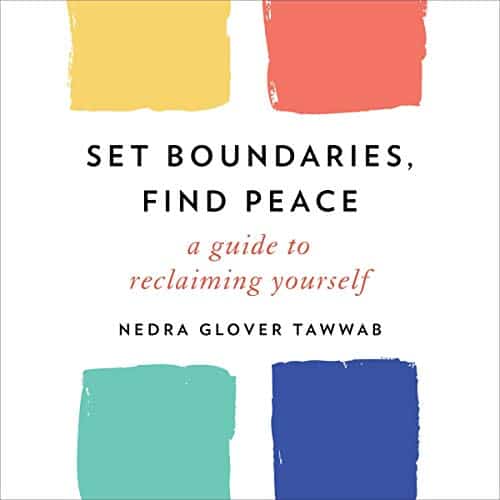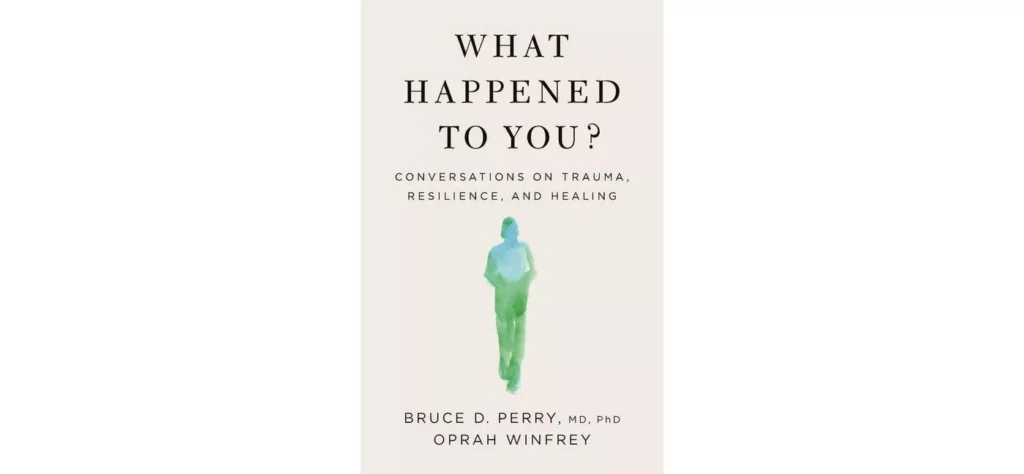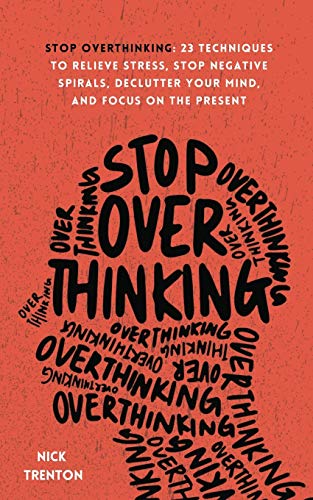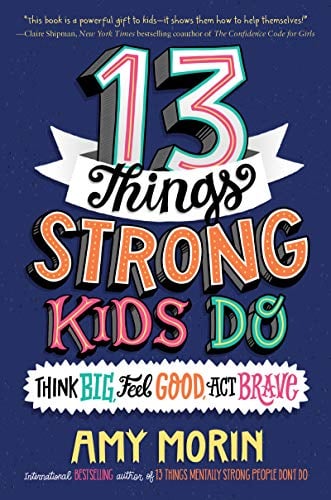It is so important to take time for yourself and find clarity. The important relationship is the one you have with yourself.
Diane von Furstenberg
The new year always gives us a wonderful chance to change, grow, and be better people all around. I don’t know about you, but I’m ready to let go of some of the hurt and mental roadblocks that have been holding me back.? Are you with me? Not until recently have I embraced personal development as an opportunity for growth and change. 2021 saw the release of many new and exciting titles in this genre, and I have compiled a few of my personal favorites together with a few recommendations by my trusted friends. Time to approach personal growth and development from unique perspectives? Heal, regroup, grow with these five mental health books of 2022.

Set Boundaries, Find Peace.
What are you physical, sexual, emotion and time boundaries? In Nedra Glober Tawwab’s New York Times bestseller, the Instagram-popular therapist explores the six areas where boundaries are essential to identify and enforce. Set Boundaries, Find Peace doesn’t just explore what these boundaries are. Glover Tawwab takes it one step further using fundamentals rooted in cognitive behavioral therapy (CBT) to offer up techniques that provide real, lasting change. Since a lack of boundaries can be at the root of an avalanche of painful experiences, i.e., feeling taken advantage of, being unappreciated and diminished at work, or navigating troubled family and love relationships, forming and maintaining healthy boundaries can be a transformational life experience. Ready to transcend codependency, power struggles, anxiety, and burnout? Setting good boundaries is a worthwhile place to begin.
Boundary Actionable Steps to Take
- This week, consciously say no to something you would rather not do. Offer no apology, and make peace with the decision. Then meditate on the experience.
- Identify three people or situations where you would like to set better boundaries. Write down dialogue based on how conversations typically go, then identify which words and phrasing you can change to establish healthy boundaries.
- Make a list of boundaries, from big to little, using the six areas of focus in Set Boundaries, Find Peace: physical, sexual, emotional, intellectual, material, and time.

What Happened to You? Conversations on Trauma, Resilence, and Healing.
Touted as the book that will change the way you see life, author Oprah Winfrey pairs with neuroscientist and trauma expert Bruce D. Perry, M.D., Ph.D. to delve into the motivations behind our current behavior and what we can do to heal the hurt, essentially rewiring our brain in the process. Using Perry’s well-researched scientific evidence, along with compassionate first-person accounts by Winfrey, this #1 New York Times bestseller gives readers permission to feel the hurt of formative years and the space to reexamine thought patterns and how they are shaped by painful experiences of our past. Rather than focusing on the impact of former trauma, What Happened to You? seeks to make peace with wounded parts of our psyche that nurture greater healing.
Healing Actionable Steps to Take:
- Take 15 minutes to write down a traumatic experience. First begin with the facts (the who, what, when, how) of the event and then the emotions you experienced. Revisit the narrative in a week to rewrite it again and compare the two versions.
- Use the writing notes you previously journaled to physically “file” away the memory. Feel the sense of peace that can come from organizing memories, emotions and experiences into a unified past and allow the brain to file it away appropriately.
- Focus on strength over trauma. What strengths did you use during a traumatic period to survive? Congratulate yourself for those actions. What strengths have you since gained? How would you respond now to a similar incident? Write down your new response today.

Stop Overthinking: 23 Techniques to Relieve Stress, Stop Negative Spirals, Declutter Your Mind, and Focus on the Present.
I’m an overthinker. It’s caused grievous mistakes and errors of judgment in my life. And lately, it’s been breeding unhappiness and uncertainty. I’ve often wondered why I have such a difficult time thinking (worrying/stressing) less? Of course it’s not enough to say, “stop overthinking” and magically get my brain to follow this order. That’s where author Nick Trenton comes in with a list of nearly two dozen techniques for refocusing, identifying the triggers of overthinking, and cultivating more mental relaxation. Using real life examples, Stop Overthinking readers will be comforted in the fact that their forms of overthinking are generally a common quirk of the human brain. Essentially, we all do it! From there, the author focuses on solutions, from mindfulness, visualization and meditation, to creating a toolkit for anyone to use whenever rumination begins to spiral.
Overthinking Actionable Steps to Take:
- Get into the habit of doing a five-minute brain dump at the start and end of each day. They can precede meditation as a way to clear out the errands, to-do’s, worries, and anxieties weighing down our psyche.
- Create a list of overthinking distractions, five to ten actionable steps you find useful when your brain goes into overthinking mode. These can be healthy distractions like taking a shower, walking around the block, listening to music, working out, or practicing a hobby. Have the list at the ready when you need it most.
- Focus outward. At moments of stress and overthinking, switch gears and give yourself the task of doing something for someone else. Tell your brain that you will return to the thing you are stressing about, but right now someone needs you. Then make the move to take action to do something kind or generous.

13 Things Strong Kids Do
Psychotherapist and social worker Amy Morin is the author of the internationally beloved 13 Things Mentally Strong People Don’t Do. Now she’s back to help tweens and teens with an easy-to-read guide for navigating some of the most confusing, emotionally-sensitive, and highly-charged years of our lives. Giving advice and strategies for tackling challenges at home, with friends and at -school, Morin’s goal is to build life-habits that young people can use to not only come out on top as they enter adulthood, but also gain a newfound sense of resilience and empowerment throughout their adult lives. 13 Things Strong Kids Do is designed for adolescents who struggle with anxiety, peer-pressure, not fitting in, and building greater confidence.
Adolescent Actionable Steps to Take:
- Model positive self-talk to children. Avoid them hearing you use negative self-talk.
- Do a group goal-setting challenge together. Set a goal, then create a list of bite-sized action steps to achieve the goal. Help each other be accountable with positive reinforcement.
- Focus more on efforts than perfect accomplishments. Recognize and acknowledge effort when it’s displayed.

The Comfort Book
Ready to be soothed, comforted, and reassured? We all could use a healthy dose of each of those positive experiences every now and then. And that’s where The Comfort Book delivers. Meant as a life-preserver for the author’s darkest
moments, it’s a collection of lists, stories, anecdotes, and other quick reads. Author of the New York Times bestseller, The Midnight Library, Matt Haig offers a veritable life-line sampler for days when we need a mental hug. This is one book you’ll want to keep around to fuel your self-healing and soothing.
Self-Care Actionable Steps to Take:
- Create your own Comfort Book either in a sketchbook, journal, or on Pinterest filled with your favorite quotes, positive self-talk, advice, and favorite moments that make you smile.
- Send a voice message to three people you love. It doesn’t matter who. Part of the author’s motive with this book is to make the rest of us feel not so alone. Comfort and connection can be found in reaching out to others.
- Make an at-home date with yourself that requires you to give as much care and forethought as if you were having a well-loved guest. Set the table, light candles, use the “good” dishes. Allow this time to show your brain that you are your own VIP guest.









Sabine
January 27, 2022Love the fact that you are including books geared towards teenagers as well. Let’s see if I can get a buy in there :). Some other interesting titles as well. I just need to get back to reading……
Stacy Kopper
January 27, 2022I’m getting better about saying no to things I do not like to do, but I still offer an apology. Wish I was better at letting go of that. Thanks for the book recommendations. Now, as soon as I dig the car out of yet another snow storm…